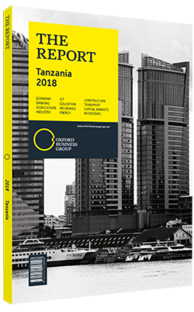General cultural and business information for those visiting Tanzania
Dress
Tanzania has an equatorial climate with dry and rainy seasons. Light clothing and an umbrella are recommended, especially during the hot and humid months between February and the middle of the calendar year. Private sector executives sometimes opt for an open collar, while public sector senior-level executives often wear a suit and tie. Women occupying top positions will often dress in conservative business attire.
Etiquette
Manners and etiquette are important. Correct greetings and job titles should be used in business meetings. Shaking hands is customary for both sexes, and it is not uncommon for two men to have an elaborate handshake ritual. It is advised to begin each meeting with several minutes of casual conversation about family, health and travel.
Currency
The national currency is the Tanzanian shilling, which comes in denominations of 500, 1000, 2000, 5000 and 10,000. The largest note of TSh10,000 is worth around $4.55. ATMs from various commercial banks are common throughout Dar es Salaam, accepting Visa and Mastercard, as well as Cirrus and Maestro. Some ATMs have limits to the amount of money that can be dispensed in one transaction. The best rates for foreign currencies are available at the bureaux de change, which are widely available. It is wise to always have enough local currency on hand for various transactions, as cash is the main medium of exchange. Retail outlets and restaurants accept credit cards.
Entry Visas
It is a good idea to obtain a visa prior to arrival, although citizens of some countries are allowed to apply for a visa at the port of entry with the appropriate documentation. Citizens of the US and Canada – who are also non-residents of Tanzania – can obtain a single-entry tourist visa for $50-100 and a single-entry business visa for $250, both valid for up to three months. Citizens of the EU and UK can secure single-entry tourist visas for €50 or £50, respectively, also valid for three months. Return tickets, proof of accommodation and an invitation letter are recommended.
Transport
The primary means of travel in Tanzania is by road, with several public transit options. Taxis do not use meters, so the fare depends on the distance of travel and your negotiating skills. Prices generally start at TSh20,000 ($9.10) and can easily exceed TSh50,000 ($22.70). Expect to pay more at the airport, during rush hour, at the weekend and late at night. The ride-sourcing app Uber is available in Dar es Salaam. These drivers have air-conditioned private vehicles or taxis and can easily be hired using a mobile phone. They are also available for a flat, hourly or daily rate, so you can keep the same driver in between stops and meetings. A car can cost up to TSh45,000 ($20.50) for the entire day. Heavy traffic congestion is common during rush hour and in areas with construction. During the rainy season many roads become flooded, which can add to the problem.
Language
While there are around 125 languages spoken in Tanzania, Bantu Swahili is the most widely used. However, English is an official language and is used extensively in formal business settings.
Health
A yellow fever vaccination is mandatory for all visitors to enter the country. The risk of malaria is moderate in cities, but visitors can opt to use oral anti-malarial medication if travelling to rural areas, where extra precautions should be taken. Dar es Salaam has a number of excellent 24-hour health facilities.
Communications
The country code is +255. Landlines are common, but mobile phones are the best means of communication and are usually listed on business cards. Many people use instant messaging services for smartphones, such as WhatsApp. A prepaid SIM card can be purchased at the airport from one of the major GSM carriers, Vodacom, Tigo and Airtel being the most popular. Talk, text and data monthly bundles are available at licensed mobile shops and are recommended for heavy usage. Scratch cards or top-ups are widely available from mobile shops, small shops and street vendors. 3G and 4G LTE coverage is common for internet usage and remote hotspot internet coverage.
You have reached the limit of premium articles you can view for free.
Choose from the options below to purchase print or digital editions of our Reports. You can also purchase a website subscription giving you unlimited access to all of our Reports online for 12 months.
If you have already purchased this Report or have a website subscription, please login to continue.

